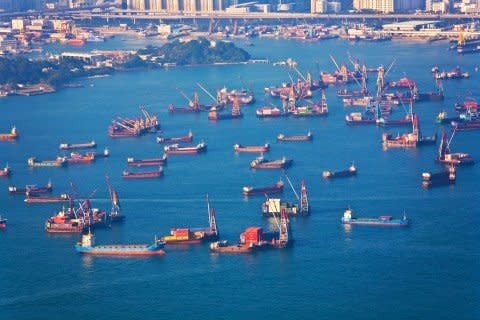
A NEW pillar under Singapore’s Maritime Cluster Fund will co-fund sustainability efforts by companies, with S$15 million set aside until 2030.
The sustainability pillar joins the fund’s existing three pillars of manpower development, business development and productivity.
It will co-fund qualifying costs for the adoption of pre-approved sustainability solutions, covering 50 per cent for small and medium-sized enterprises (SMEs) and 30 per cent for non-SMEs, capped at S$30,000 per solution.
The aim is to “catalyse first-mover adoption of sustainable solutions”, said Transport Minister Chee Hong Tat at the debate on his ministry’s budget in Parliament on Tuesday (Mar 5).
Under the new pillar, the Maritime and Port Authority of Singapore may also fund other projects for new sustainability solutions or projects that encourage industry-wide adoption. More details will be released by the third quarter of 2024.
This is among several moves to support the sector’s sustainability drive, noted Chee. As announced in Budget 2024, the existing Energy Efficiency Grant (EEG) and Enterprise Financing Scheme – Green (EFS-G) will be extended to the maritime sector.
The EEG co-funds the adoption of energy-efficient equipment – in the maritime industry’s case, domestic port and harbour craft equipment – and is available until March 2026.
The base tier provides up to 70 per cent support for pre-approved equipment, capped at S$30,000. There is also an advanced tier for larger investments, with a cap of S$350,000 per company across both tiers. More details will be released by the end of 2024.
Under the EFS-G, harbour craft owners or operators may apply for loans to help them transition to cleaner fleets. The government shares 70 per cent of the risk.
Chee also announced moves to streamline the handling of shipments that use multiple forms of transport, noting that a transhipment from air to sea transport may take more than five days.
The aim is to “at least halve” this, with a target for goods to leave Singapore on a connecting flight or vessel within 24 hours of arriving here, he said.
First, to reduce transhipment times between Singapore’s sea and air ports, the Ministry of Transport will convene an Alliance for Action with DB Schenker, PSA, Cargo Community Network, Sats : S58 +0.77%, Singapore Airlines : C6L +2.04% and the Singapore Aircargo Agents Association. This will involve improving coordination between logistics players and adopting a real-time digital platform.
Second, only one permit will be needed to tranship goods via land checkpoints, down from two currently. This refers to goods being transported by land between air or sea ports in Malaysia and Singapore. This will be implemented in the first quarter of 2025.
Chee said this could save around S$2 million a year at an industry level, or more if the volume of goods transhipped through Singapore’s land checkpoints increases.
Source : https://www.businesstimes.com.sg/companies-markets/transport-logistics/s-15-million-addition-to-maritime-cluster-fund-among-moves-to-improve-sector-s-sustainability

